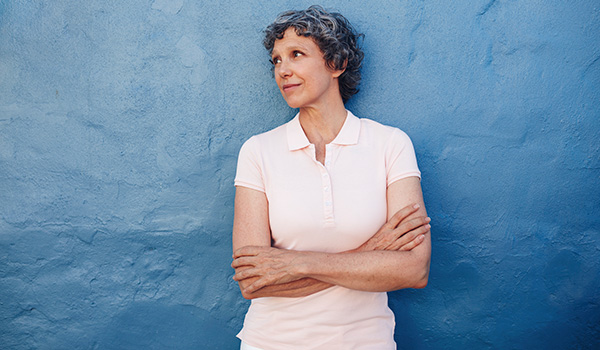Prep For the Test and Save Your Life

Women are the ultimate multitaskers—taking care of everyone and everything—yet we frequently avoid a single screening test that can literally save our lives. Planning a colonoscopy can feel awkward, yet it is well-worth having because colorectal cancers can be prevented and even cured quickly IF detected early.
This highly preventable form of cancer causes nearly 50,000 deaths per year in the United States, partly because people are not getting screening tests. Screening tests are important because they detect precancerous polyps and early stage colorectal cancer which often does not cause symptoms. And now, there are less-invasive tests to consider as well. Screening for colorectal cancer should begin at 45 or earlier if you have certain risk factors such as inflammatory bowel disease or a family member who has had colorectal cancer.
Dr. Liana Tsikitis, a colorectal surgeon and associate professor of surgery at OHSU, reports that the incidence of colorectal cancer in people under 50 has unexplainably increased steadily over the last ten years. Because of this, Dr. Tsikitis strongly encourages people of any age to pay attention to body signals such as prolonged abdominal discomfort (cramps, gas or pain), unexplained weight loss, weakness or fatigue, rectal bleeding or change in bowel habits. If you are experiencing any of these symptoms, check in with your primary care provider, regardless of your age.
The female factor
While the incidence of colorectal cancer is slightly higher for men than women, it is the third most common cause of cancer death for women. Because it can be prevented with screening, this is an important opportunity to reduce cancer death in women.
In addition, American Cancer Society Health Systems Manager Bridget Kiene points out that women have a critical role to play because often "they are the drivers of health-related appointments and things like that. They can be really impactful in advocating for their loved ones to get screened."
Which colon screening is best?
The most dependable and common screening procedure is a colonoscopy, which provides a full and direct imaging of the colon. It is normally done once every ten years, or if the procedure reveals anything suspicious, once every five years.
Other, less intrusive screening methods are also available and can be discussed with your primary care provider. However, because these tests are less conclusive than a colonoscopy, they must be done more frequently and if the results are questionable, they must be followed by a colonoscopy.
Dr. Tsikitis reports that many people seem to feel that they don't have time to be screened. "They say, 'Oh, it doesn't fit my work, it doesn't fit my life.' But OHSU has even offered screenings on Sundays!" According to Dr. Tsikitis, the hardest part of a colonoscopy is the 24-hour preparation period, which involves a liquid diet and a colon cleanse. The procedure itself, she says, is "a breeze." Indeed, with standard sedation, colonoscopy is painless. It is also quick;the procedure takes under an hour, and typically you can be in and out of the clinic in less than two hours.
Whatever you decide, the best test is the one that gets done.
What can I do now?
Before and between screenings, the National Cancer Institute suggests that there are a number of things you can do to decrease your risk of colorectal cancer, including:
- Exercise! A sedentary lifestyle increases your risk, so find some aerobic activity that you enjoy and will do regularly.
- Quit smoking. Smoking and tobacco use are linked to many cancers including colorectal.
- Eat more fiber. Add more fiber (like fresh fruits and vegetables) to your diet. Reduce your intake of processed foods.
- Drink less alcohol. Having two or more drinks per day increases your risk of colorectal cancer.
- Maintain an optimal weight. People who are overweight may be more likely to develop the following cancers: breast, colon, rectum, endometrium, esophagus, kidney, pancreas and gallbladder.
- Know your family history. When cancer runs in the family screening, even before age 40, is often advised. Also, certain ethnic groups, including African Americans and Alaska Natives, have a higher-than-average statistical risk and should begin screening at 45.
- Learn the facts, and schedule an appointment if you need one now.